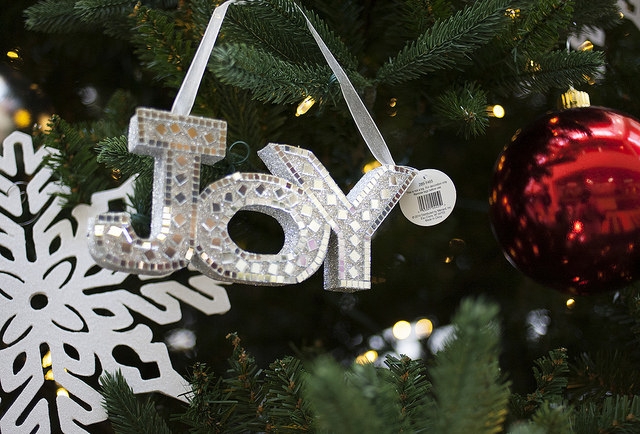The Economics of Christmas

'Tis the season to be jolly...or is it the season to be stressful and spend lots of money? Don't get me wrong, I like Christmas. I like the decorations, the warm and tasty foods, the candies and chocolates, buying presents and receiving them as well. But after many years of working in retail, I saw the aggressive strategies from the retailers to "push" more product and maximize profit (mostly for the bonuses of upper management and corporate employees). One of those strategies is putting the Christmas merchandise out the day after Halloween, if not sooner. There comes a time when one must ask, is this at all meaningful, is this what Christmas is supposed to be about?
Let's look at things from the beginning.
Christmas is an annual festival commemorating the birth of Jesus, observed on December 25th as a religious and cultural celebration among billions of people around the world. The celebratory customs associated with Christmas have a mix of pre-Christian, Christian, and secular themes and origins. Popular modern customs of the holiday include gift giving, completing an Advent calendar, Christmas music, an exchange of Christmas cards, church services, a special meal, and the display of various Christmas decorations including Christmas trees, Christmas lights, and garland.
Christmas is significant for retailers because it is typically a peak selling season in many nations around the world. Even though Christmas may not be celebrated everywhere, there are a number places that "observe" the holiday. In China for example it is considered an "entertainment" holiday where people celebrate and entertain outside the house. Sales increase dramatically as people purchase gifts, decorations, and supplies to celebrate. In the US, the "Christmas shopping season" starts as early as October. In Canada merchants begin advertising just before Halloween, and step up their marketing following Remembrance Day on November 11.
(Photo: Christmas; Wikipedia)“People would be happier if you gave them cash instead of an equally-expensive present,” according to a Forbes article. Art Carden, a contributor to Forbes and an economist, very well explains the “economics” of Christmas. We overspend, and yet, many gifts the day after Christmas end up being returned. So what is the purpose? Hypocrisy. He mentions that over-gifting is a first world problem.
We have forgotten about the meaningful part of the gifting process involving some sacrifice. That “impulse” purchase will not be beneficial to the economy; in the end it is unsustainable. And as far as helping others Timothy Keller, author of Generous Justice, explains how it is more than just giving stuff away. It’s a lifestyle decision that requires getting meaningfully involved in the lives of others. Over the long run, this is likely to be far more effective than simply bunching all of our benevolence into a few frenzied weeks.
In the story How the Grinch Stole Christmas, the Grinch learns that Christmas doesn’t come from a store. The Grinch learns that Christmas means a little bit more. As we head down the Christmas stretch, it’s a lesson we should take to heart.
(Photo: las - initially (Lori Semprevio)/Flickr)I guess an ideal Christmas would be, as a classmate once described to me, to dedicate those two to three day celebrations (Christmas Eve, Christmas Day, the day after Christmas) to someone else rather that giving and receiving presents by volunteering and making others happy in our communities. Besides, why do we need to go crazy shopping on one specific day, don’t we have all year to shop for what we need? Is it more meaningful when we specifically give presents on that specific day? And how does it enrich our lives? At the end it is not about “helping the economy,” in most cases it is about satisfying our consumerism with the excuse to spend more.









